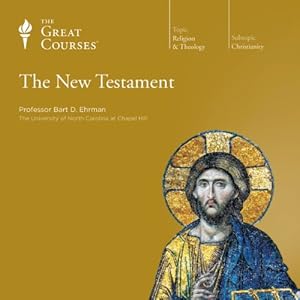I'm very, very slowly working through the lectures from this Teaching Company course The New Testament. This course looks at the historical context of The New Testament (NT).
Lecture 1: The Early Christians and Their Literature
- There are a few ways to study the NT 1) as a faithful believer; 2) From a cultural perspective (e.g. the NT's influence on Western culture and on literature); and 3) From the historical context of the initial audience. Erhman's course intends on studying the NT from the third perspective.
- There are 27 books in the NT, all written by Christians of the 1st century. Many of these books claim to be written by direct apostles of Jesus (i.e. people who are considered to have been sent directly by Jesus to spread his word). All of the books were originally written in Greek.
- The 27 books of the NT comprise 4 major groups. 1) The four Gospels, describing the birth, life, and death of Jesus; 2) The Acts of the Apostles, describing the spread of Christianity around the world; 3) 21 epistles, 13 of which are written by Paul, with a focus on the beliefs and ethics of Christianity; 4) The Book of Revelation, which is a piece of apocalyptic literature, originally thought to have been written by the apostle John, but later revealed to have been written by another John. (The belief that it was written by the apostle is why it attained popularity among early Christians.)
Texts read:
The New Testament: A Historical Introduction to the Early Christian Writings, by Bart D. Ehrman - Chapter 1
An Introduction to the New Testament, By Raymond Brown - Chapter 1
The New Testament Canon, by Harry Y Gamble

No comments:
Post a Comment